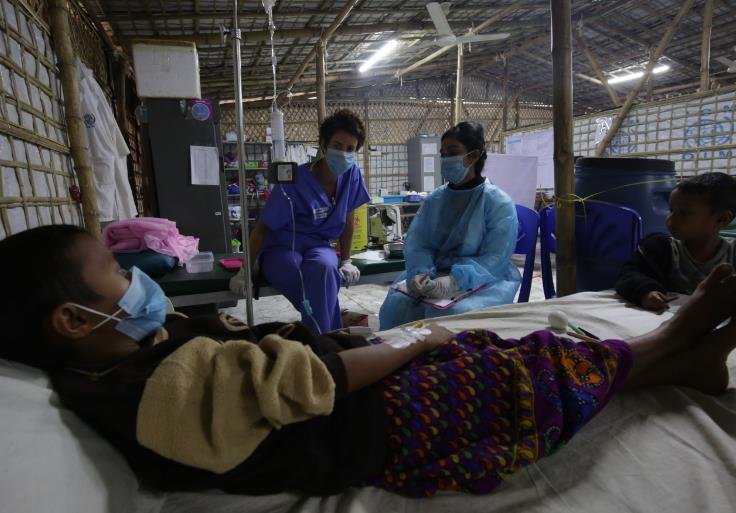The United Kingdom has opened its doors to refugees from the Middle East to address its critical nursing shortage. This initiative aims to integrate skilled healthcare professionals into the NHS, leveraging their expertise to bolster the healthcare system. The program not only provides much-needed support to the NHS but also offers refugees a chance to rebuild their lives and careers in a new country.
The UK has been grappling with a significant shortage of nurses, a situation exacerbated by the COVID-19 pandemic. The NHS has been under immense pressure, with thousands of vacancies needing to be filled urgently. By welcoming refugee nurses, the UK is tapping into a pool of experienced professionals who are eager to contribute. This initiative is seen as a win-win, providing the NHS with skilled staff while offering refugees a pathway to stability and employment.

Refugee nurses often face numerous challenges when trying to re-enter their profession in a new country. Language barriers, unfamiliarity with the local healthcare system, and the need for certification can be significant hurdles. The UK’s program addresses these issues by providing tailored support, including language training and assistance with the certification process. This comprehensive approach ensures that refugee nurses can transition smoothly into their roles within the NHS.
The integration of refugee nurses into the NHS is not just about filling vacancies; it’s also about enriching the healthcare system with diverse perspectives and experiences. These nurses bring unique skills and insights from their home countries, which can enhance patient care and foster a more inclusive healthcare environment. The program highlights the UK’s commitment to both humanitarian efforts and improving its healthcare services.
Overcoming Challenges and Building Careers
For many refugee nurses, the journey to the UK is fraught with difficulties. Leaving behind their homes and families, they arrive in a new country with hopes of rebuilding their lives. The UK’s initiative provides a lifeline, offering these professionals a chance to continue their careers and contribute to society. The support provided by the program is crucial in helping them overcome the initial challenges and integrate into the workforce.
The program includes a comprehensive training component designed to bridge any gaps in knowledge and skills. This training covers various aspects of the UK healthcare system, ensuring that refugee nurses are well-prepared for their roles. Additionally, mentorship and peer support are integral parts of the initiative, helping new arrivals navigate their new environment and build professional networks.
One of the key successes of the program is its focus on individual stories and experiences. By listening to the personal journeys of refugee nurses, the program can tailor its support to meet their specific needs. This personalized approach not only enhances the effectiveness of the training but also fosters a sense of belonging and community among participants.
The Impact on the NHS and Beyond
The integration of refugee nurses into the NHS has had a profound impact on the healthcare system. These professionals have filled critical gaps, ensuring that patients receive the care they need. Their contributions have been particularly valuable in areas with severe staff shortages, where their presence has alleviated pressure on existing staff and improved patient outcomes.
Beyond the immediate benefits to the NHS, the program also has broader social implications. By providing refugees with meaningful employment, the initiative helps them achieve financial independence and stability. This, in turn, contributes to their overall well-being and integration into UK society. The success of the program serves as a model for other countries facing similar challenges, demonstrating the potential of refugee integration to address workforce shortages.
The positive impact of the program extends to the communities where refugee nurses work. Their presence fosters greater cultural understanding and diversity, enriching the social fabric of these areas. Patients benefit from the diverse perspectives and experiences that refugee nurses bring, which can enhance the quality of care and patient satisfaction.
